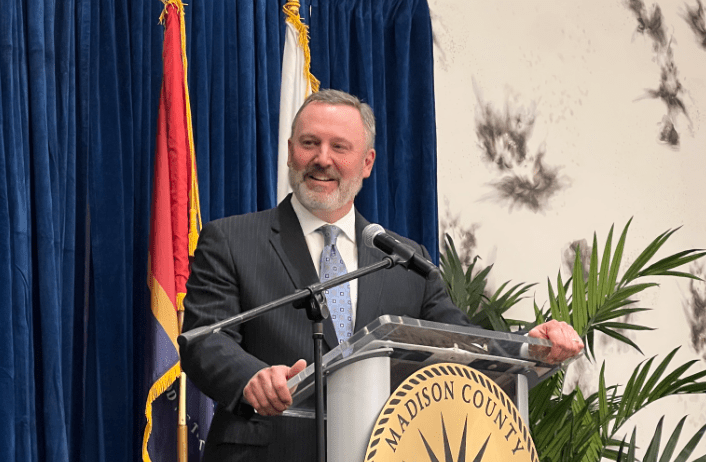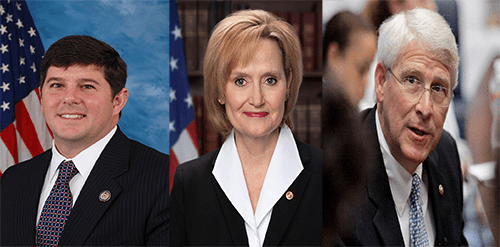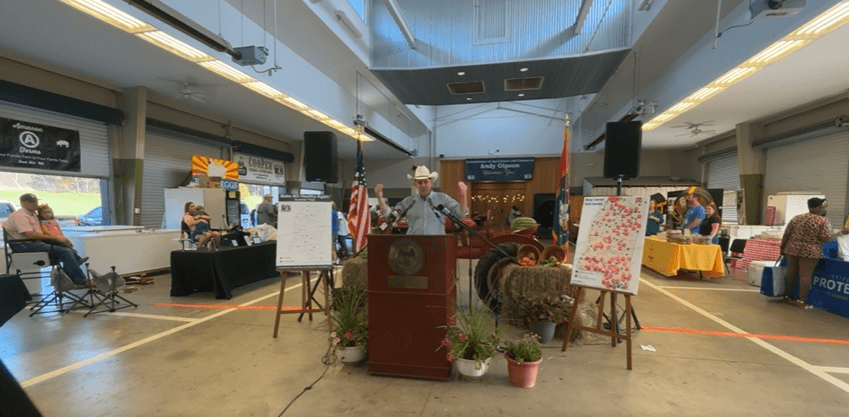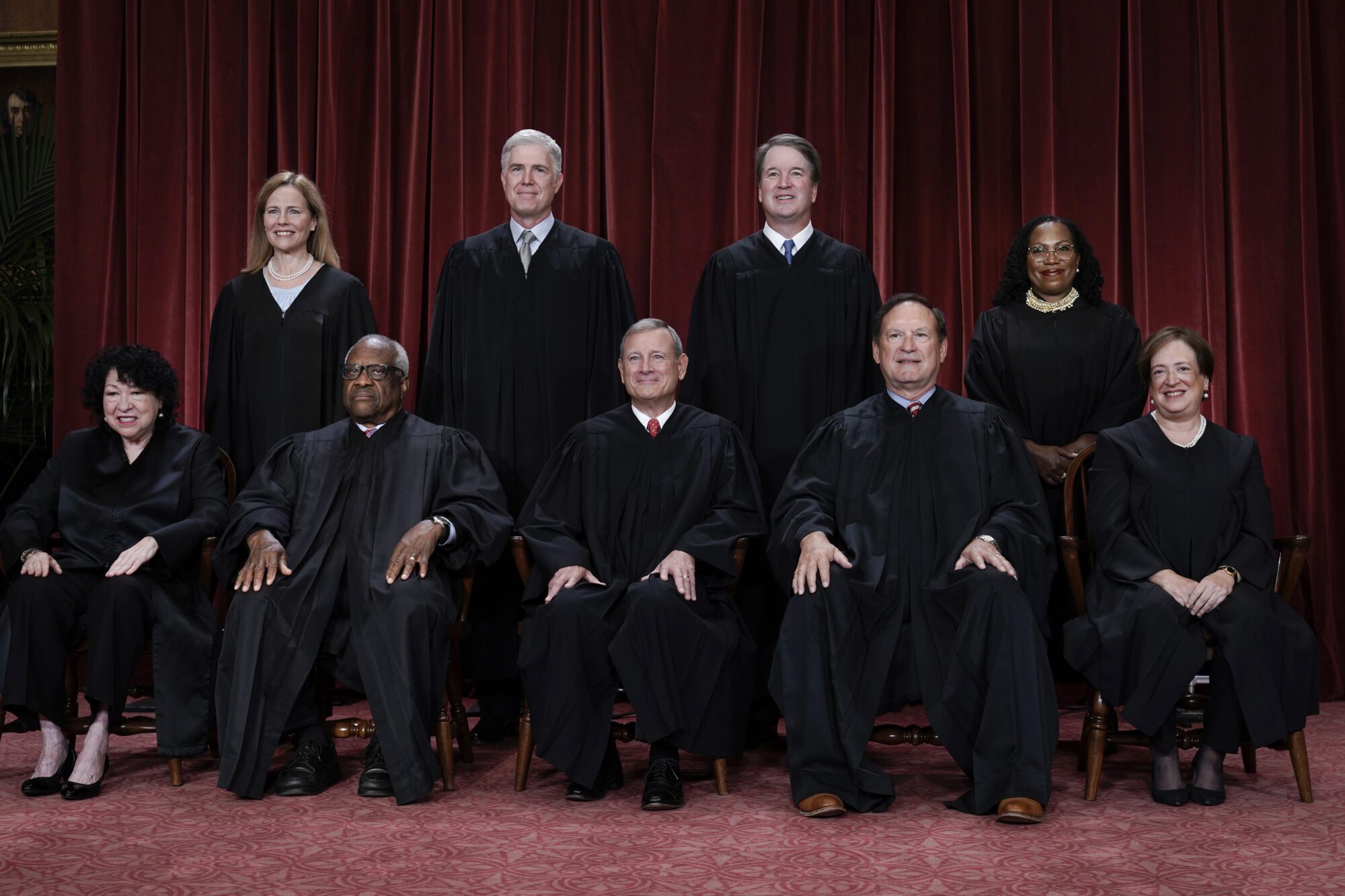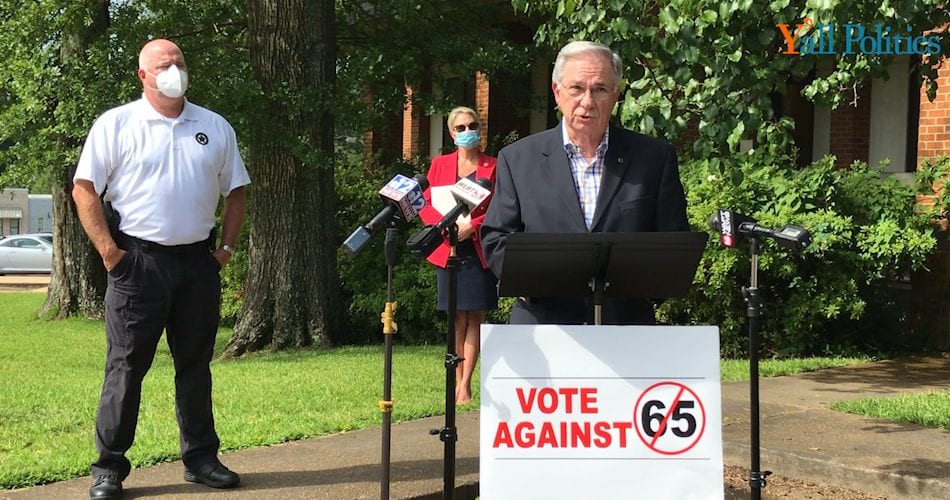
When voters head to the polls in November two initiatives regarding the legalization of medical marijuana will appear.
The first is Initiative 65, which was brought forward by the citizens of Mississippi who would like to see the legalization of the substance.
The second is Initiative 65A which was authored by the Mississippi House of Representatives and passed by the Legislature as a counter-resolution to the citizen initiative. It also legalizes the substance medically, but the language of the bill is different and, in some places, more restrictive.
Monday in Ridgeland, local officials gathered to express why they oppose the original Initiative 65.
Speaking first on behalf of citizens was Ed Langton with Mississippi Horizon, an organization that is taking the lead in fighting the initiative. He is also a member of the Mississippi Board of Health.
Langton began by expressing the concern that this ballot initiative could become part of the Mississippi constitution. This is something that has never happened for a product. He says that that act alone is contradictory to the purpose of the constitution.
His organization opposes several components of the initiative, citing it as “overly broad and permits marijuana use for practically any reason.” Langton claimed that there is no such thing as medical marijuana; it is simply marijuana.
“To call it medical marijuana, medical ice cream, whatever you want to put the word medical before, it does not necessarily make it medical unless it is truly a medical product,” said Langton.
Some of their major discrepancies with the initiative are the lack of limitations on the amount of dispensaries, the zoning which allows a dispensary to be located within 500 feet of a school, church or childcare facility, and how they believe the language makes the Health Department essentially a taxing agency, just to name a few.
“If you’re got to vote for something there is an alternative with 65A, or you could just vote no on any amendment to the Constitution, which when you really get practical and realistic it is the right way to be and right way to vote,” said Langton.
You can read their full commentary on Initiative 65 HERE.
State Representative Jill Ford (R) urged Mississippians to vote “no” on Initiative 65 but said if they felt compelled to vote for the legalization of medical marijuana to vote for Initiative 65A, the one authored by the House.
“Initiative 65 is a broadly written document that does not contain sufficient language to establish a legitimate medical marijuana program,” said Representative Ford. She says the resolution is also misleading as to the definition of “medical marijuana treatment centers,” which Ford said can include growers, harvesters, processors, and sellers.

She referenced Oklahoma who also did not limit the number of licenses a state could issue. Ford said they now have over 3,900 dispensaries, which is surprisingly more than California, a state has full on legalization.
Rep. Ford expressed concerns that these “pot shops” would diminish property values in local towns and prevent local government from collecting tax revenue from these businesses.
In contrast, Initiative 65A only allows a select number of licenses to be issued and observes local zoning ordinances as well as other things, she said.
“Initiative 65A would give people in favor of medical marijuana a responsible pathway for accessing it,” said Ford.
Sheriff of Madison County Randy Tucker focused on the impact the legalization of medical marijuana would have on crime rates. He said under the laws of the state of Mississippi, marijuana is a schedule one narcotic because the probability exists for it to be highly abused.

“You’re about to task law enforcement with making decisions without any proper backing or any authority whatsoever,” said Tucker. “Passing this initiative 65 you better get ready to fund them [law enforcement] because you’re looking at an increase in petty crimes, violent crimes, DUI’s.”
He called the initiative as written “garbage.”
Tucker said a major concern is the marijuana cards. He said in the event someone is caught with marijuana and presents that card, an officer has no way of knowing whether that substance was bought legally at a dispensary or illegally off the streets.
Tucker claimed he has not yet been presented with any scientific evidence that marijuana is medically effective.
“I’ve yet to see anyone put one piece of evidence, scientifically or medically, in my face that says it is a medically approved drug. Until that time, we are going to enforce the laws as they are,” said Tucker. He went on to call movements to legalize the substance a money making ponzy scheme.
Tucker told the group that the amount of medical marijuana that can be approved for a two-week time period, which is 2.5 ounces, would equal over 70 joints, which is roughly five a day.
Work to legalize the drug medically has been happening with much momentum for the last year with over 220,000 signatures on the ballot initiative and others providing expertise on the subject.
“Initiative 65 is supported by a steering committee comprised of doctors, leaders of disease groups, law enforcement officials, religious leaders, veterans, advocates, and others from across Mississippi who believe patients with debilitating conditions deserve safe and legal access to medical marijuana under the care of physicians. More than 85% of Americans and 80% of Mississippians support the medical use of marijuana to manage symptoms of debilitating conditions,” said Communication Director for the Medical Marijuana 2020 campaign, Jamie Grantham. “Initiative 65 specifies 22 qualifying debilitating conditions that are proven to respond to medical marijuana, including cancer, epilepsy, Parkinson’s disease, PTSD, ALS, and others. Alternative 65A, which was written by politicians, does not list any conditions and leaving it up to politicians to decide which conditions, if any at all, would qualify to be treated with medical marijuana.”
When it comes to issues with the constitution, Grantham said the Mississippi Legislature has locked 20 other attempts to pass legislation to allow for this legalization, and all were blocked which left them with no chose but to pursue a ballot initiative. She disagreed that Initiative 65 did not have the proper framework for success including the contested zoning requirements.
“Initiative 65 provides the framework for a regulated, functioning medical marijuana program whereby treatment centers must apply for and meet qualifications in order to obtain licensure under the Mississippi Department of Health’s rules and regulations,” said Grantham.
During a workshop in February hosted by Mississippians for Compassionate Care (MCC), brought two out of state professionals to Jackson to discuss what they saw as benefits for the legalization of the drug. Both presenters shared their findings on why medical marijuana was beneficial for the treatment of some ailments.
Dr. Rachel Knox, spokesperson for Doctors for Cannabis Regulation and chair of the Oregon Cannabis Commission, shared that it wasn’t until the 1900’s that cannabis began to be prohibited. This is something she said was “racist,” adding that it favored big businesses in which cannabis was intruding upon, noting the implementation of the ‘Marijuana Tax Act of 1937’ in which the Federal Government could increase its revenue.

Representative Joel Bomgar (R), also of Madison County, is a supporter of the legalization of medical marijuana and a key player behind Initiative 65.
During debates in the House of Representatives he claimed that the House’s version was just another way to kill the resolution. Any ballot initiative requires two-thirds of the vote, and Bomgar argued with a nearly identical name many people could be confused and vote for the wrong one.
Speaker of the House Philip Gunn sided with Initiative 65A, citing “tremendous problems” with the original resolution.
“The legislative alternative gives people who are in favor of medical marijuana a responsible pathway to having it. The alternative allows the public to vote for medical marijuana without legalizing recreational marijuana,” said Speaker Gunn. “Anyone who has read the proposed initiative 65 and listened to the debate on the House floor can see that there are tremendous problems with the initiative. It goes way beyond what it has been represented to be and comes extremely close to legalizing recreational marijuana.”
The initiatives will be on the ballot in November, along with the proposed new state flag design.

